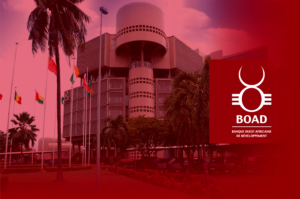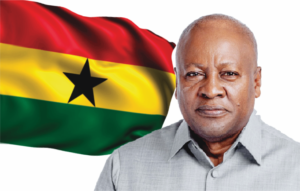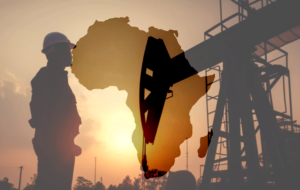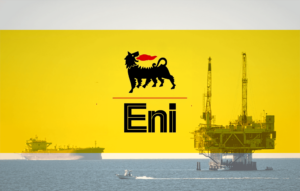Recap: The AI Gold Rush: Policy Gaps and what Africa can do differently

An international development and technology consulting company with a focus on improving the quality of life of Africans
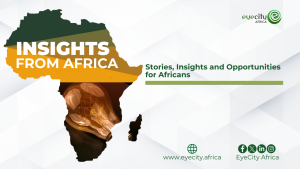
Welcome to EyeCity Africa Newsletter! In our last edition, we explored the urgent need for African governments to define artificial intelligence (AI) regulations on their terms and ensure that they reflect Africans’ unique values and ambitions. We further explored how countries such as Nigeria, Kenya, Egypt, and South Africa are taking the lead with national AI regulation and data protection strategies, highlighting the importance of ensuring that innovation serves the people, not just the technology. This newsletter edition looks further beyond just strategy documents, focusing on how these strategies are translating into real progress. We will examine the following: What is working? What is still missing? And what citizens, businesses, and partners can do to help Africa rise in the age of AI?
Progress and Promise: Early Wins
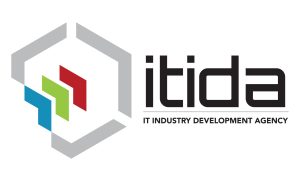
Across the continent, there are clear signs that African governments are not just observers in this AI revolution but are actively participating through the development of national strategies. These national strategies have already yielded early successes. In Egypt, for instance, the Information Technology Industry Development Agency (ITIDA) has partnered with 500 Global, a venture capital firm, to host several programs aimed at advancing the six pillars of the country’s National AI Strategy (2025–2030), which was first launched in May 2021. The updated version was also launched in January 2025, a clear move to build upon the foundations of the first version in alignment with the rapid global advancements in AI technologies. This collaboration has led to approximately $30 million in investments in over 67 Egyptian companies. Another essential direct result of Egypt’s national strategy is that the country has climbed 55 places in the global AI readiness index over the past five years.
Egypt’s National AI Strategy extends its influence regionally, promoting AI readiness across the Middle East and Africa, leading through strategic partnerships and regional collaboration. Egypt hosted the 2nd Global Dialogue on AI and Governance and chairs the Arab AI Working Group under the Arab Telecommunications and Information Council of Ministers (ATICM). This achievement aligns with the strategy’s main goal to position Egypt as a leading global hub for artificial intelligence.
In Kenya, Microsoft and G42, an Abu Dhabi-based global technology holding group leading large-scale artificial intelligence and cloud computing initiatives, have committed $1 billion in investment to support AI infrastructure development and cybersecurity education, with the goal of training 1 million Kenyans by 2027 to thrive in an AI-driven economy. Another major initiative is the Africa Centre of Competence for Digital & AI Skilling in Nairobi, established by the Kenyan government, United Nations Development Programme (UNDP), and Microsoft, which aims to train 300,000 public servants across Kenya and Africa in AI and digital skills. The centre supports a broader push for digital innovation in governance, with a nationwide training rollout planned for July 2025.
Similarly, in Nigeria, the government, through the Ministry of Communications and the Digital Economy flagship program named 3MTT, is providing training in the area of artificial intelligence upskilling to thousands of young Nigerians in partnership with various organisations. As part of this effort, Microsoft has contributed a $1million investment through its AI Skilling Initiatives. This collaboration with the Nigerian government supports the country’s draft National AI Strategy launched in April 2025, aiming to provide in-demand AI skills training for 1 million Nigerians and equip 70% of its young workforce with AI-related skills. On the international stage, Nigeria is actively shaping continental policy. The country is a key participant in the African Union’s Continental AI Strategy and recently hosted the West African Internet Governance Forum (WAIGF). At these forums, Nigeria champions the need for localised AI solutions and data sovereignty, advocating for frameworks that reflect the region’s unique contexts. This positions Nigeria not just as a participant but as a thought leader, setting the agenda for AI governance across West Africa.
South Africa’s National AI plan was formally rolled out as a draft in April 2024, with the strategy outlining around a dozen focus areas. These include integrating AI across government and the economy, adopting a “government-as-platform” model, and expanding AI education and workforce training. It also calls for creating AI “sandboxes” for safe testing, funding AI research and startups (with grants and partnerships), and establishing dedicated AI laws and ethical frameworks. As part of its broader policy alignment efforts, the AI plan is framed to align with South Africa’s National Development Plan (NDP) 2030. It sets medium-term targets for 2030. Microsoft is investing ZAR 5.4 billion in an AI-skilling initiative, aiming to train 50,000 young people, fostering innovation and economic growth by equipping the next generation with crucial artificial intelligence skills.
Where the Policy Falls Short
![]()
Despite numerous visionary national strategies meticulously crafted to foster Africa’s AI readiness and ensure a competitive edge in the global technological landscape, their practical implementation encounters diverse challenges. These hurdles are not merely technical but encompass a complex interplay of economic, social, ethical, and regulatory factors.
Implementation Roadmap: A detailed implementation roadmap and integration plan are missing, risking stagnation and the long-term sustainability of AI initiatives. This raises doubts about transitioning theoretical aspirations to practical, thriving applications.
Data Governance: AI systems need high-quality data, but many organisations struggle with incomplete, outdated, or inaccurate data, leading to unreliable AI models. Low effort in data collection results in the use of unstructured databases (text, emails), which are not optimized for AI and require resource-intensive preprocessing. Africa faces challenges in data collection and management, and AI models trained on non-African data may lead to biases.
Funding Gaps: The global AI gold rush is in full swing, and billions are pouring into startups promising to reshape industries. But in Africa, the flow is a trickle. While the continent boasts over 2,400 AI companies, the sector attracted a paltry $73B across several deals in Q1 of 2025. This is a stark contrast to the $23.2B raised by global AI startups in the same period. The disparity is glaring, indicating that less than 1% of global AI investment is flowing into Africa. This is despite the continent’s immense potential, driven by a burgeoning youth population and opportunities for innovative solutions.
Governance and Regulatory Frameworks: Additionally, ethical and regulatory challenges pose significant obstacles. Some of these strategies lack a comprehensive legal framework governing AI usage, particularly in areas such as data privacy, algorithmic bias, and accountability in AI-generated decision-making. Learning from international frameworks such as the European Union AI Act could provide essential guidance for developing a robust governance structure that ensures responsible AI integration.
Looking Ahead: What It Means for Key Players
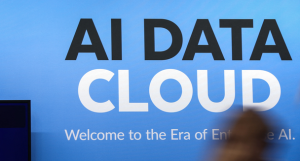
Moving beyond strategic documents, the true test of Africa’s AI readiness hinges on decisive action. While national strategies set important intentions, they must now be backed by a serious commitment and investment. This means that government and private sector stakeholders directing more resources and greater investment in local expertise, robust data infrastructure, and the development of inclusive systems is paramount to realizing the continent’s vision. Without these steps, the vision within this strategy document will remain out of reach. It’s time to turn plans into progress.
For local businesses and startups, AI presents a dual opportunity to innovate and optimize, as opportunities abound. However, to truly benefit from this technological shift, these businesses must go beyond surface-level adoption. A critical first step is establishing robust systems for collecting, organizing, and managing high-quality, relevant data. Without a strong data foundation, even the most advanced AI tools will fall short of delivering real value.
For investors, collaborators, and global tech companies, the continent offers a vast and untapped market with a burgeoning young population and unique data sets. Implications for international players include opportunities for significant investment in infrastructure, talent development, and AI solution co-creation. However, it also requires a commitment to ethical engagement, respecting local values, and ensuring that partnerships contribute to ethical and sustainable, homegrown AI ecosystems rather than merely extracting value. Genuine collaboration, knowledge transfer, and equitable partnerships will be key to long-term success.
The current AI strategies across Africa represent a pivotal opportunity to harness the transformative power of artificial intelligence for socio-economic development. This journey, however, demands more than just promises; it requires concerted action from all stakeholders. Stakeholders across the board, including policymakers, entrepreneurs, researchers, and citizens, must contribute to, collaborate on, and advocate for the development of AI that is inclusive, ethical, and rooted in African realities. The future of AI in Africa hinges on collective commitment, strategic investment, and decisive action to ensure that technological progress aligns with the continent’s unique needs and aspirations.
Opportunities
CLIMATE LAUNCHPAD (ANGOLA and NAMIBIA)

Climate Launchpad is seeking innovative concepts to combat climate change from all around Angola and Namibia. Applicants will join an intensive bootcamp and receive expert coaching to transform their ideas into solid business plans and stand a chance to compete on both regional and global stages.
Deadline: July 7, 2025
AFRICA DEEP TECH CHALLENGE
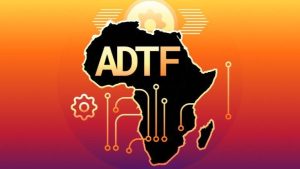
The Africa Deep Tech Challenge is a pan-African initiative designed to unearth and empower the next generation of innovators who are creating groundbreaking solutions tailored for the continent’s unique challenges. The challenge specifically targets “deep tech” solutions rooted in tangible scientific and engineering innovation. Participants stand to win up to $8,000 in equity-free grant funding, access to mentorship and training.
Deadline: July 31, 2025.
FOUNDHERS LABS PROGRAM 2025

The FoundHers Labs Program empowers early-stage, women-led tech businesses across Africa. It is designed to help founders scale their ventures and prepare for venture capital funding. Participants benefit from expert mentorship, in-person workshops, and practical online learning modules. This intensive, 3-month hybrid program guides you from business fundamentals to investment readiness.
Deadline: August 18, 2025
THE RHODES SCHOLARSHIP FOR WEST AFRICA
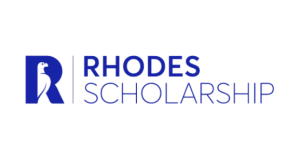
The Rhodes Scholarships for West Africa offer prestigious, fully funded postgraduate opportunities at the University of Oxford. Open to exceptional students from West African countries, the program seeks individuals with academic excellence, leadership, and commitment to service. Scholars are selected through a rigorous process that emphasises intellect, character, and leadership potential. The scholarship covers tuition, living expenses, and travel costs for up to three years of study. It fosters a global community of future leaders dedicated to making a positive impact.
Deadline: August 28, 2025
UNITED NATIONS AFRICAN POLICY INNOVATION FELLOWSHIP
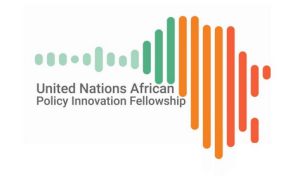
This fully funded fellowship is designed for Africa’s emerging policymakers. The core of the fellowship is a six-month, multi-phase program. It begins with a virtual component where fellows refine their policy project proposals from their home countries. This is followed by an immersive in-person experience at the United Nations Headquarters in New York. Fellows are embedded within relevant UN departments, gaining exposure to global policy discussions and receiving mentorship from experts.
Deadline: Unspecified
Source: EyeCity Insights


